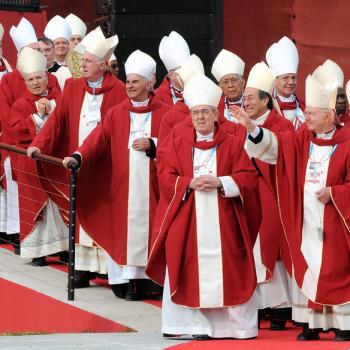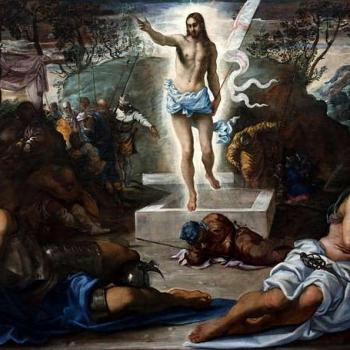Novelist John Updike died of lung cancer at age 76. One of the most acclaimed of contemporary American authors, Updike was raised a Lutheran. An active church member all of his life, he had sojourns in the Christian existentialism of Kierkegaard and the neo-orthodoxy of Karl Barth, attended a Congregational church, and ended up an Episcopalian. His early catechesis stuck, though, as he kept returning to the themes of God’s grace, Christ, and the Sacraments. This was mostly as a counterpoint to his overall subject of middle-class, suburbanite angst. (Read this account of Updike talking about his faith.)
Some of Updike’s work is overwhelmingly powerful in its exploration of Christian truth. (See, for example, his Easter poem below. His short story “The Music School” haunts me to this day.) And yet, although he might be seen as the culturally-engaged, sophisticated, critically-acclaimed Christian artist evangelicals keep calling for, most Christians stayed away from his work and never claimed him.












